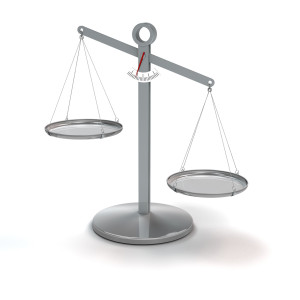 Like anything else on this planet, self-managed Super funds, too, are not meant for everyone. For starters, there is a need to have close to formidable amount of money in your kitty. Also, you need to have the acumen to manage your affairs yourself; hence, the term ‘Self-managed’. With this said, the popularity of SMSF is enough evidence of the fact that it has got plenty of benefits. Let us go through the advantages and disadvantages of self-managed Super funds.
Like anything else on this planet, self-managed Super funds, too, are not meant for everyone. For starters, there is a need to have close to formidable amount of money in your kitty. Also, you need to have the acumen to manage your affairs yourself; hence, the term ‘Self-managed’. With this said, the popularity of SMSF is enough evidence of the fact that it has got plenty of benefits. Let us go through the advantages and disadvantages of self-managed Super funds.
Tag: managing A Super Fund Archives
Should I Start A Self-Managed Super Fund?

SMSF’s fortunes have seen quite an upswing after the global financial crisis turned away investors somewhat from the traditional Supers. Not without reasons though have they made their place in the hearts of millions. It is well known that they offer tremendous amount of flexibility even as they offer you a degree of control not equalled by any other form of Super. After all, you are managing your own affairs here.
Capital Gains Tax Cap for Small Business Owners
 If they could make retirement planning an active agenda of their working lives, farmers and small business owners could benefit a great deal more from their Super investments. Sadly, unlike those who have worked as employees all their lives, these small-business owners and farmers spend their working lives thinking about how to expand their business and buy more land, jeopardising their retirement nest egg woefully by not paying enough emphasis to the concessional and non-concessional contributions.
If they could make retirement planning an active agenda of their working lives, farmers and small business owners could benefit a great deal more from their Super investments. Sadly, unlike those who have worked as employees all their lives, these small-business owners and farmers spend their working lives thinking about how to expand their business and buy more land, jeopardising their retirement nest egg woefully by not paying enough emphasis to the concessional and non-concessional contributions.
Why You Should Avoid Financial Advice from Property Promoters
 In an article for the website Smart Company, Kirsten Robb sheds light on the financial advice unethically offered by real estate agents. It should be noted that property promoters who don’t carry an Australian Financial Services (AFS) license are not eligible to give recommendations on SMSF-routed real estate investments. Yet, this is what’s exactly happening rampantly.
In an article for the website Smart Company, Kirsten Robb sheds light on the financial advice unethically offered by real estate agents. It should be noted that property promoters who don’t carry an Australian Financial Services (AFS) license are not eligible to give recommendations on SMSF-routed real estate investments. Yet, this is what’s exactly happening rampantly.
Tax Recommendations for SMSF Members
 Self-managed Super Funds are perceived to be DIY in nature, but not all their aspects can be dealt with without professional assistance. When it comes to strategising the tax implications, there are quite a few things the SMSF trustees should be aware of.
Self-managed Super Funds are perceived to be DIY in nature, but not all their aspects can be dealt with without professional assistance. When it comes to strategising the tax implications, there are quite a few things the SMSF trustees should be aware of.
SMSF Age Profile Undergoes Sea Change
 The SMSF age profile has undergone a sea change. Compared to July last year, the number of SMSF entrants between the age bracket 34 and 54 has shot up from 36.6% to 62.1%. For the age bracket 25-34, SMSF entrant list has nearly trebled — from a modest 4% to a formidable 11.1%.
The SMSF age profile has undergone a sea change. Compared to July last year, the number of SMSF entrants between the age bracket 34 and 54 has shot up from 36.6% to 62.1%. For the age bracket 25-34, SMSF entrant list has nearly trebled — from a modest 4% to a formidable 11.1%.

